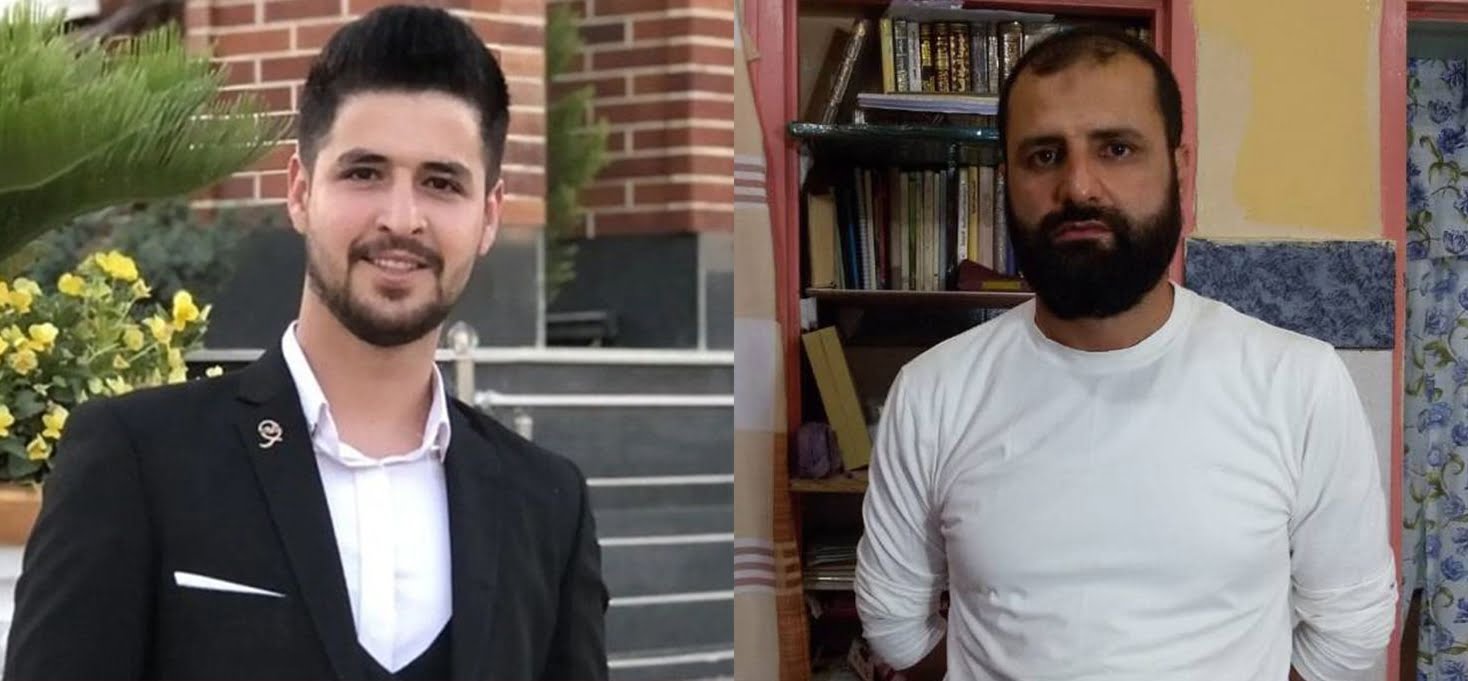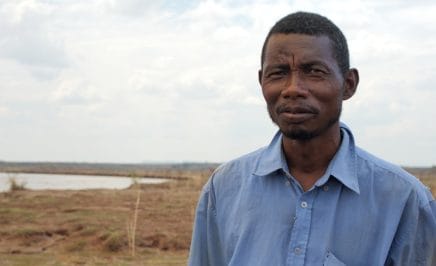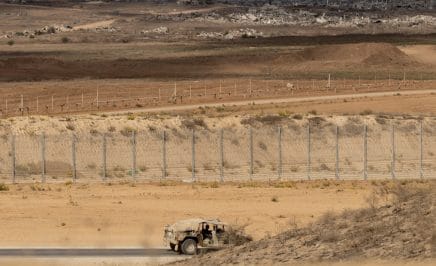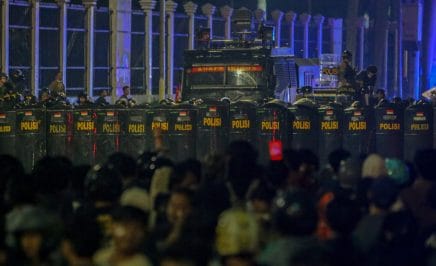The Iranian authorities’ executions of two men after egregiously unfair trials mark a harrowing descent into new realms of cruelty, said Amnesty International today.
On 23 January 2024 at dawn, the authorities arbitrarily executed Mohammad Ghobadlou, a 23-year-old protester with a mental disability, following a process and ruling shrouded in secrecy. On the same day, they also arbitrarily executed Farhad Salimi, a man from Iran’s Kurdish Sunni minority whose decade-long pleas for a fair retrial, excluding torture-tainted “confessions”, were ignored.
“The arbitrary execution of Farhad Salimi lays bare a distressing pattern of the Iranian authorities’ disproportionate use of the death penalty against Iran’s oppressed ethnic minorities. The arbitrary execution of Mohammad Ghobadlou dumbfounded his loved ones and lawyer, who were awaiting his retrial, unaware that judicial authorities at the highest levels bypassed legal processes in secret and blatantly flouted the basic principles of humanity and the rule of law,” said Diana Eltahawy, Amnesty International’s Deputy Director for the Middle East and North Africa.
Mohammad Ghobadlou’s lawyer was given less than 12 hours’ notice that his client was unexpectedly and unlawfully slated for execution. This occurred even though, in July 2023, Branch 1 of the Supreme Court that had quashed Mohammad Ghobadlou’s death sentence and ordered a retrial – a retrial that never took place after the Head of the Judiciary, Gholamhossein Mohseni Eje’i, intervened.
Farhad Salimi is the fourth man since November 2023 to be arbitrarily executed from a group of seven Kurdish Sunni men sentenced to death over a decade ago in an unfair trial that lasted only a few minutes and relied on torture-tainted “confessions”. There are mounting fears that the Iranian authorities are intent on imminently carrying out the executions of the three remaining men from the group – Anwar Khezri, Kamran Sheikheh and Khosrow Basharat.
“The Iranian authorities’ relentless killing spree in the aftermath of the ‘Woman Life Freedom’ uprising, which has led to the arbitrary execution of hundreds of people after grossly unfair trials in the past year, underscores the need for the renewal and extension, respectively, of the mandates of the Special Rapporteur on the situation of human rights in Iran and the UN Fact-Finding Mission in the upcoming session of the UN Human Rights Council. It is also time for states to initiate criminal investigations under the principle of universal jurisdiction against all those suspected of criminal responsibility for crimes under international law, including top Iranian officials”, said Diana Eltahawy.
Shocking execution of tortured youth with disability after secret order
Mohammad Ghobadlou was arrested during the height of the “Woman Life Freedom” uprising in September 2022 in connection with the death of an official which the authorities claimed resulted from Mohammad Ghobadlou running over him with a car during a protest in Tehran on 22 September 2022. Following unfair proceedings, Criminal Court 1 in Tehran province sentenced him to death for “murder” on 24 December 2022 and Branch 39 of the Supreme Court upheld the conviction and sentence on 12 March 2023.
Branch 1 of the Supreme Court quashed this conviction and death sentence on 25 July 2023 and ordered a retrial, which it said had to involve an adequate mental health assessment of the impact of Mohammad Ghobadlou’s disability on his culpability.
Despite this ruling, the authorities refused to organize the retrial. Official documents, posted by his lawyer on X (formerly Twitter) on the eve of Mohammad Ghobadlou’s execution, reveal that the Head of the Judiciary had blocked the retrial and unlawfully referred the case to the same two judges presiding over Branch 39 of the Supreme Court who had previously upheld his conviction.
The subsequent developments, including the nature of the process and entity ordering his execution, were kept secret by the authorities. In response to growing public outcries, hours after Mohammad Ghobadlou’s execution, Mizan News Agency, the media branch of the judiciary, disclosed a previously unseen verdict from Branch 39 of the Supreme Court, dated 4 January 2024. The one-paragraph ruling annulled the July 2023 judgement ordering a retrial on grounds that it contradicted Shari’a law without providing any further reasoning. This verdict reveals that the Head of the Judiciary intervened following a request from the head of the justice department (dadgostari) of Tehran province, Ali Alghasi, demonstrating how top judicial officials secretly colluded to deny Mohammad Ghobadlou a retrial.
Tortured Kurdish Sunni man executed
Farhad Salimi was arrested in December 2009 in West Azerbaijan province alongside six other Kurdish Sunni men and accused of membership in “Salafist groups”.
In open letters written from prison, the men said they were subjected to torture and other ill-treatment to make forced “confessions”. Farhad Salimi said he was repeatedly pressured to make statements incriminating himself and to dismiss his independently chosen lawyer.
The men were sentenced to death around June 2018 by Branch 26 of the Revolutionary Court which convicted them of “corruption on earth” (efsad-e fel-arz). The Supreme Court overturned this verdict on the grounds of lack of evidence and returned their case for retrial to Branch 15 of the Revolutionary Court, which sentenced them to death again.
Both trials were grossly unfair: authorities denied the men access to lawyers at the investigation phase; the judge refused to allow their lawyer to speak during their trial; and their forced “confessions”, which they repeatedly said were extracted through torture, were used as evidence.
On 21 January 2024, Farhad Salimi was transferred to solitary confinement in Ghezal Hesar prison in Karaj, Alborz province. He, along with the three other men, began a hunger strike on 3 January 2024 in protest at the execution of Kurdish man Davoud Abdollahi on 2 January 2024, sentenced to death in the same case, and the threat of their own imminent executions. Anwar Khezri, Kamran Sheikheh and Khosrow Basharat remain on hunger strike. Two other men – Ghasem Abesteh and Ayoub Karimi– who were tried in the same case were also arbitrarily executed in November 2023.
Background
Iranian authorities have intensified their use of the death penalty as a tool of repression in the aftermath of the “Woman Life Freedom” uprising to crush dissent and terrorize the population.
Amnesty International opposes the death penalty in all cases without exception. The death penalty is a violation of the right to life and the ultimate cruel, inhuman and degrading punishment. Amnesty International has consistently called on all states that retain the death penalty, including Iran, to establish an official moratorium on executions, with a view to completely abolishing the death penalty.









